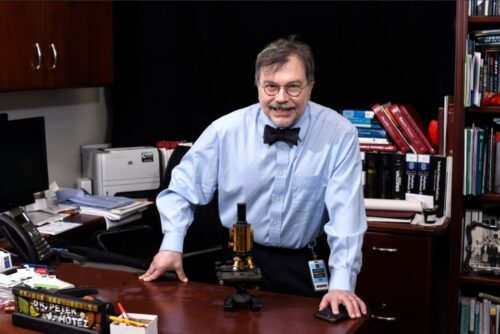In this technological age, media platforms are overflowing with news to the point that it can be difficult to discern what is or isn’t true. One American scientist is familiar with the danger of rampant misinformation: Peter Hotez (YC ’80), a physician-scientist specializing in vaccine development and tropical diseases. At the forefront of vaccine advocacy, Hotez is both a Nobel Peace Prize nominee and recent recipient of the Winslow Medal from the Yale School of Public Health. He is also the author of The Deadly Rise of Anti-Science: A Scientist’s Warning, a book that examines the rise of anti-science sentiments from the anti-vaccine movement and future implications for science itself.
The Deadly Rise of Anti-Science explores how the anti-vaccine movement accelerated in the US around the misconception that vaccines cause autism in children. This false belief originated from a now-retracted 1998 paper published in The Lancet, which alleged that the measles, mumps, and rubella (MMR) vaccine induced autism in twelve children. Although numerous studies have since proven that there is no link between the MMR vaccine and autism, the anti-vaccine movement has continued to target other vaccines and immunization practices. In Hotez’s book Vaccines Did Not Cause Rachel’s Autism, written about his daughter, Hotez debunks anti-vaccine claims by presenting scientific literature on the genetic factors involved in early fetal brain development that contribute to autism.
The anti-vaccine movement has evolved into a political campaign centered around the idea of “health freedom,” with the debunked link between vaccines and autism resurfacing in rhetoric from US Department of Health and Human Services Secretary Robert F. Kennedy Jr. Right-wing platforms such as the Republican Tea Party in Texas, the House Freedom Caucus, and Fox News have reinforced this movement. On an episode of the Health & Veritas podcast, Hotez commented on the fact that “freedom” in the context of health has become a rallying cry for anti-vaccine believers. His outspokenness on the issue has made him a target, drawing threats from a self-proclaimed “army of patriots,” along with persistent stalking and harassment both online and in-person. As such, Hotez argues that common labels like “misinformation” or “infodemic” are insufficient, suggesting chaos rather than coordination. “The point of the book is to say [that anti-vaccine propaganda is] organized, it’s well-financed, and it’s politically motivated,” he said.
Hotez fears that the recent anti-COVID-19-vaccine movement is only the prelude to further resistance against science that could extend from childhood immunizations to international research. He links this sentiment to the growing distrust of scientists, which he attributes to perceptions of elitism. “I think for me, it’s been one of the hardest books I’ve ever had to write,” Hotez said. “It’s the hardest thing to talk about because it means you have to talk about partisan politics.”
“The United States of America is built on a nation of science and technology,” Hotez affirmed multiple times in the podcast. Indeed, the country would not be where it is today without innovations like the lightbulb, railroads, or computers. Even as science and politics collide, it remains an American right to hold one’s own opinion. Consider the impact of the anti-vaccine movement—or the EPA’s plans to lay off thousands of scientists—and ask yourself: what will anti-science do for you?

